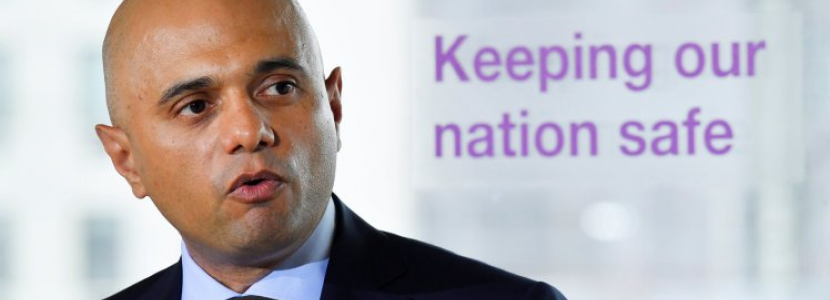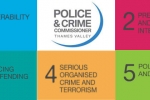
Yesterday the new Home Secretary, Sajid Javid, published CONTEST - the UK's strategy for countering terrorism. The last strategy was published in 2011 and this review is much welcomed in the wake of several attack's last year and in response to the continually changing threat.
In the seven years since the previous strategy was published the nature and the scale of terrorist activity has evolved. The threat from Daesh remains significant as well as an increase in far-right extremist groups. The increased use of the internet to reach individuals and inspire so-called "lone wolf" attacks has made detection of plots all the more difficult for both the police and security services.
The sharing of intelligence is key and the UK already leads the way on information sharing between the security services and the police as can be seen by comparison with some of our near neighbours. There is still much to be done however and I welcome the pilot schemes announced by the Home Secretary to improve intelligence sharing, not just regarding individuals, but also the wider intelligence picture that will help create a picture of the local threat level.
Counter-terrorism has rightly seen an increase in funding in recent years as the greater threat has emerged. There is however a danger that we lose sight of the importance of traditional neighbourhood policing in preventing the types of atrocities that took place last year. Not only the first response, but often the first opportunity for diversion from terrorism often comes from front-line neighbourhood or response officers.
In a world where individuals often work on their own or with a very small group of people to plot attacks we rightly need to use the most modern intelligence gathering techniques available to detect such activities. As CONTEST recognising through the proposed pilots, this information needs to be shared widely within the policing community.
There are four elements to the CONTEST strategy:
- Prevent - Stopping people from becoming involved with terrorism
- Pursue - Stopping attacks from happening
- Protect - Strengthening protection against attacks
- Prepare - Mitigating the impacts of an attack if it does happen
If the Government's strategy is to be successful it will be the constables and PCSOs on the ground who spot those on the edges of gangs or being exploited. They will be making the referrals to the PREVENT programme and tackling the earliest signs of radicalisation. In the case of PURSUE, it will often be the same frontline officers who will spot the suspicious package, the missing vehicle or take the vital piece of information from a member of the public. Sadly as we have seen when tragic events do occur it is often local police officers who step in to PROTECT the public when things go wrong.
The Government's strategy should be welcomed, the share of intelligence which is one of the key aims is vital in order to protect the public. The investment in Counter Terrorism Policing has seen a real boost in the resources available to protect the UK, but this needs to happen whilst ensuring that police forces up and down the county can maintain traditional neighbourhood policing.

